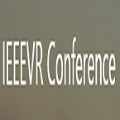Emotions are multifaceted phenomena that affect our behaviour, perception, and cognition. Increasing evidence indicates that induction mechanisms play a crucial role in triggering emotions by simulating the sensations required for an experimental design. Over the years, many reviews have evaluated a passive elicitation mechanism where the user is an observer, ignoring the importance of self-relevance in emotional experience. So, in response to the gap in the literature, this study intends to explore the possibility of using Virtual Reality (VR) as an active mechanism for emotion induction. Furthermore, for the success and quality of research settings, VR must select the appropriate material to effectively evoke emotions. Therefore, in the present review, we evaluated to what extent VR visual and audio-visual stimuli, games, and tasks, and 360-degree panoramas and videos can elicit emotions based on the current literature. Further, we present public datasets generated by VR and emotion-sensing interfaces that can be used in VR based research. The conclusions of this survey reveal that VR has a great potential to evoke emotions effectively and naturally by generating motivational and empathy mechanisms which makes it an ecologically valid paradigm to study emotions.
翻译:越来越多的证据表明,感官机制通过模拟实验设计所需的感觉,在激发情感方面发挥着关键作用。多年来,许多审查都评价了用户作为观察员的被动感应机制,忽视了情感体验中自我相关性的重要性。因此,针对文献中的空白,本研究报告打算探索利用虚拟现实(VR)作为情感感应积极机制的可能性。此外,为了研究环境的成功和质量,VR必须选择能够有效唤起情感的适当材料。因此,在本次审查中,我们评估VR视觉和视听刺激、游戏和任务以及360度全色和视频能够在多大程度上引起基于当前文献的情感。此外,我们介绍了VR产生的公共数据集以及可用于VR研究的情感感应界面。本调查的结论表明,VR具有巨大潜力,通过产生激励和感应机制,使其成为研究情感的具有生态有效性的范式。





